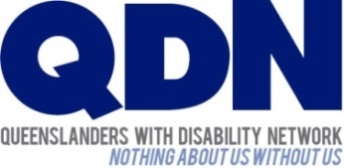The information on this page is also available as a downloadable Quick Guide, by clicking below. There are PDF and word versions.
Introduction
A peer support network has its best resource in its members, and will also need other information and assistance. This Quick Guide will help you to think about what information and assistance your group will need, and how to find it.
Let’s make it happen
What information and assistance will your group need?
There are several Quick Guides focusing on resources you might need for the network, and how to find these. This Quick Guide focuses on information and other kinds of assistance for the network.
The information and assistance you will need may include:
- General information about establishing and facilitating a peer support network
- Specific information that relates to the group’s purpose
- Assistance in building skills and capacity
- Assistance in managing crises or difficulties
- Assistance in providing support to network members
Finding information and assistance
General information
You will find general information about establishing and facilitating a peer support network in this suite of Quick Guides and in the web links in the More Information sections – these include links to manuals, ideas, evaluations, learning about what works and what doesn’t and much more. They may also offer contact numbers for organisations with expertise in peer support networks, so that you can talk issues through with someone.
It will also be helpful to make contact with other peer support networks facilitators in your field. State peak bodies will be helpful here.
Information specific to your group
This information will depend on your group’s purpose. Some examples may include:
- NDIS information – do lots of research – check out the NDIA’s website, the websites and resources of peak bodies in disability, key organisations who specialise in the aspect of NDIS that your group is interested in e.g. pre-planning or self-management. Subscribe to newsletters, updates, Facebook groups and pages, events pages and directories. Join peak bodies and groups. Find out who in your community has expertise in your area of interest – this may include the NDIA, disability organisations, mental health organisations, NDIS participants, advocates. Invite these people to speak at your network meetings on specific topics the group is interested in
- Campaigning on an issue – again, do lots of research on the issue. Find out what kind of campaign has worked in other places. Research the relevant laws, regulations and human rights instruments. Find out who in your community has expertise in the issue – this may include people in council, law firms, political parties, and advocacy and community organisations. Invite these people to speak at your network meetings on the issue, or to partner in your campaign. Find seasoned campaigners in your community – even if their campaigning interest is different to yours – and invite them to share their knowledge and ideas with your group.
Assistance in building skills and capacity
Find out who in your community has expertise in skill and capacity building. This may include people with disability, disability organisations, mental health organisations, NDIS participants, trainers, leaders, allied health professionals. Talk with these people about how to develop your network with skill and capacity building in mind – what does it take, what skills do you need and how do you get them, how to meet individual needs in a group setting etc.
Invite these people to speak at your network meetings or lead some activities if appropriate and desired by the group.
Assistance in managing crises or difficulties
There are a number of places you can find assistance when you are struggling with difficulties in the network.
First of all, your co-facilitators/group leaders: Have a focused conversation about how you, and they, see what is happening and work on some positive actions you can take to resolve issues. If these don’t work, you haven’t failed – try something else!
Secondly, the group itself could be useful: You might try engaging the whole group in an honest conversation about what is happening (keeping to any group agreements about how the group behaves, and refraining from making it about individuals within the group).
And don’t forget your network of supporters: Who do you trust that has the maturity and skill to assist you with difficulties? Look particularly for people skilled in group process.
If none of these local solutions are useful, the More Information sections in these Fact Sheets may be helpful in linking you to peer support network manuals, ideas, and much more. Contact organisations with expertise in peer support networks, or other peer support networks facilitators so that you can talk issues through with someone.
Assistance in providing support to network members
What assistance you seek here will depend of course on what support the person needs. If it is a group issue, try your co-facilitators and other group members first. If it is a welfare issue, try finding an organisation or service that can help e.g. if the person is having mental health issues, research what services and supports are in your local community and offer them to the group member. If the issue is one of requiring support to take part in the network, seek assistance from the person’s family and carers, or from any service providers they might access, or volunteer groups who may assist. ALWAYS ask the person’s permission before seeking assistance on their behalf.
Where you can find more information
See Quick Guide: Building a posse
See Quick Guide: Establishing a network of organisations/key people that can assist
See Quick Guide: Finding organisations to assist
See Quick Guide: Finding community organisations to assist
See Quick Guide: Hunting resources
Useful web links:
My Community Directory could be very useful:
https://www.mycommunitydirectory.com.au/
The Centre of Excellence for Peer Support (mental health) has some great resources for peer support networks:
http://www.peersupportvic.org/index.php/2014-12-15-22-42-49/2014-12-16-02-22-27/Resources/
Co-authored by Queenslanders with Disability (QDN)

